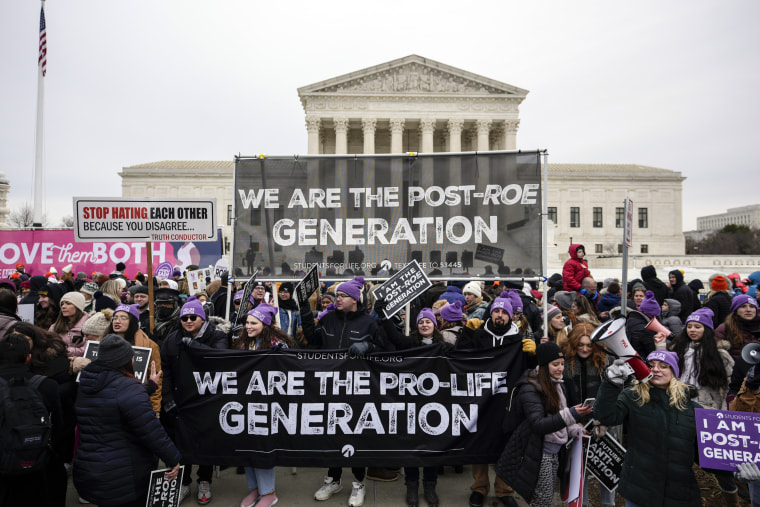In the year since the Supreme Court overturned Roe v. Wade and eliminated legal protections for abortion, 24 states have restricted access to abortion, according to an analysis of the Guttmacher Institute's State Legislation Tracker.
According to the pro-abortion rights group, 16 of those states — including Arkansas, Idaho, Indiana, Louisiana, Kentucky, Mississippi, Missouri, North Dakota, Oklahoma, South Dakota, Tennessee and Texas — have enacted total or near-total abortion bans, though many of those bans face scrutiny by courts and are currently suspended amid ongoing litigation.
The other eight states states, which have restricted abortion but not completely banned it, have legalized gestational limits on abortion that fall earlier than what was allowed under Roe.
For example, Arizona has a ban on abortions after 15 weeks of gestation.
A few states, like Wisconsin, have not seen any passage of new laws on abortion since the Supreme Court overturned Roe. But that state has a near-total abortion ban on the books from the 19th century, and a case about whether that ban can go into effect is working its way through state courts.
In the meantime, people in Wisconsin do not have legal access to abortion services.
On the other side of the issue, 14 states have expanded or protected existing access to abortion.
Michigan, for example, saw voters last year pass a ballot initiative that guarantees several reproductive rights in the state constitution. In December, Democratic Gov. Gretchen Whitmer also signed an executive directive to protect abortion rights in the state.
Additionally, at least 20 states have passed so-called "shield laws," which are generally intended to protect patients and providers of abortions.

